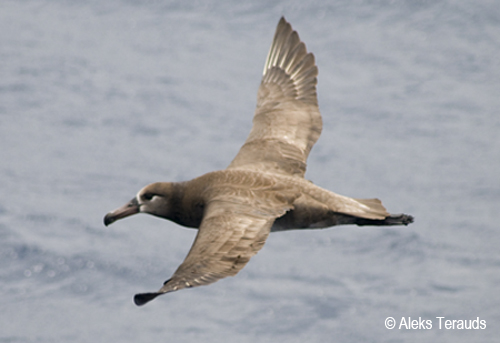The five-unit classroom activity package Winged Ambassadors - Ocean Literacy through the Eyes of Albatross is now available free online (click here). The five lessons in the package comprise activities, using inquiry-based science instruction, aligned to standards for (US) grades 6 - 8 with extensions for grades 9 - 12. The migration and hotspots lessons feature albatross tracking data. The goal is to teach mapping, some math skills, and ocean literacy.
Contents:
Lesson 1 - Introduction to Seabirds
Lesson 2 - Tracking Albatross Migrations
Lesson 3 - Protecting Ocean Hotspots
Lesson 4 - Bolus Analysis
Lesson 5 - Campus Debris Survey.
Students will use data from current research tracking albatross migrations and ocean plastic pollution; be inspired by paintings and photographs from scientist and artist Sophie Webb; and investigate albatross diets using detailed images of dissected boluses by National Geographic photographer David Liittschwager.
Each lesson includes a plan with learning objectives and procedures, an outline of necessary materials and preparation, time estimates, suggested discussion questions and possible answers, ideas for differentiating activities for diverse learners, and expanded resources, videos and links; student worksheets and handouts for photocopying and/or projecting; and presentations with photos, art, wildlife research data, and teacher presentation notes to support the lessons.

Black-footed Albatrosses have been tracked at sea in the North Pacific
Photograph by Aleks Terauds
The activity package has been produced by the NGO Oikonos - Ecosystem Knowledge which aims to increase understanding of human impacts on marine ecosystems and improve biodiversity conservation on imperilled islands. The lessons were created by Meghan Marrero of Mercy College and Oikonos in collaboration with NOAA's Cordell Bank National Marine Sanctuary and the Papahānaumokuākea Marine National Monument.
With thanks to Michelle Hester, Oikonos for information.
John Cooper, ACAP Information Officer 12 August 2012

 English
English  Français
Français  Español
Español